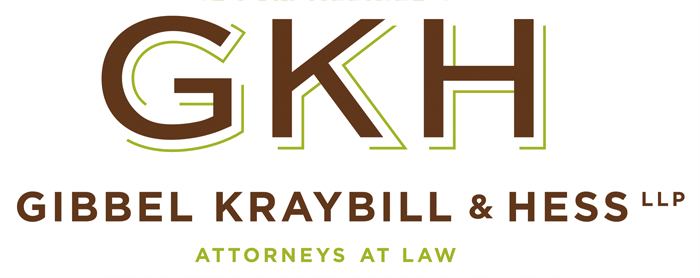Pennsylvania’s and Congress’s Response to COVID-19: Business Update Part 3
Welcome to the third installment of GKH’s COVID-19 Business Update. Our previous updates focused on the Families First Coronavirus Response Act and Governor Wolf’s order mandating the closure of non-life sustaining businesses. Today’s update will focus on further changes to the list of non-life sustaining businesses and further details regarding the Families First Coronavirus Response Act.
Governor’s Order and Life Sustaining Businesses: Changes
Since our last update, Governor Wolf has modified the list of life sustaining and non-life sustaining businesses twice. The most recent changes were released on March 24, 2020. These March 24th changes are less lengthy than the previous March 21st changes, but may be significant to the businesses affected. Here is a non-exhaustive selection of the businesses most recently added to the list of life-sustaining businesses and activities:
- Veneer, Plywood, and Engineered Wood Product Manufacturers
- Other Wood Product Manufacturers
- Lumber and Other Construction Material Wholesalers
- Firearm Sales are still excluded, except that firearms dealers may operate physical businesses on a limited basis to complete only the portions of a sale/transfer that must be conducted in-person under the law, subject to the following restrictions: 1) all such sale/transfers will be conducted by individual appointment during limited hours only so as to minimize social interactions and congregating of persons; 2) the dealer will comply with social distancing, sanitization of applicable area between appointments, and other mitigation measures to protect its employees and the public.
- Fuel and Bottled Water Direct Sales
- Telecommunications Resellers, but excluding physical retail
- Drinking Places are still excluded, except that they may offer take-out and delivery
It is paramount that any business that wishes to continue its physical operations both consult the Life Sustaining Business List and Life Sustaining Business FAQ before making a determination as to whether the business is or is not life sustaining and whether a waiver is appropriate. Using these resources will save a lot of time and confusion on the part of business owners and other decision makers. The above resources will accompany this update here.
Families First Coronavirus Response Act (FFCRA): Employer’s Notification to Employees
Most businesses are currently navigating how they will comply with the FFCRA, and some businesses are starting to wonder how they should inform their employees of their rights under the act. Just like traditional FMLA posting requirements, the FFCRA requires that a poster produced by the Department of Labor must be displayed so employees are aware of their rights under the FFCRA. The Department of Labor released the official poster providing notice to employees. A copy of the poster will accompany this update here.
Helpful information about how to display the poster and other similar questions can be found here.
The Department of Labor has also recently released FFCRA resources for employers and employees, as well as a general frequently asked questions page.
Families First Coronavirus Response Act (FFCRA): Tax Reimbursement Information
As many businesses prepare to comply with the FFCRA by offering their employees paid leave and extended FMLA leave, those same businesses are wondering how they will afford to pay for such leave, especially under the current economic climate. GKH has heard a lot about how these payments will be at no cost to the businesses making them, and the following is how the FFCRA, under guidance from several federal agencies, proposes that such payments will be reimbursed to employers.
Employers are to be compensated for all eligible paid leave provided to its employees through tax credits. Put simply, employers will be able to recoup the cost of the leave paid to its employees by not depositing payroll taxes to the IRS. These payroll taxes include withheld federal income taxes, as well as both the employee and employer share of Social Security and Medicare taxes with respect to all employees. If the amount of payroll taxes is not enough to cover the cost of the paid leave, employers can file a request for an accelerated payment for the additional amount from the IRS (see here).
We are waiting for the stimulus package to get through Congress. It is our understanding that this will provide loans to small businesses that will be forgiven, additional funds for unemployment compensation and other measures to support both public and private institutions. We will provide an update once that passes.
DISCLAIMER: The foregoing does not constitute legal advice and has been prepared for informational purposes only. Please contact us directly with questions about how this relates to your specific situation.
Prepared by GKH attorneys Jeff Worley and Ian R. Brinkman.
